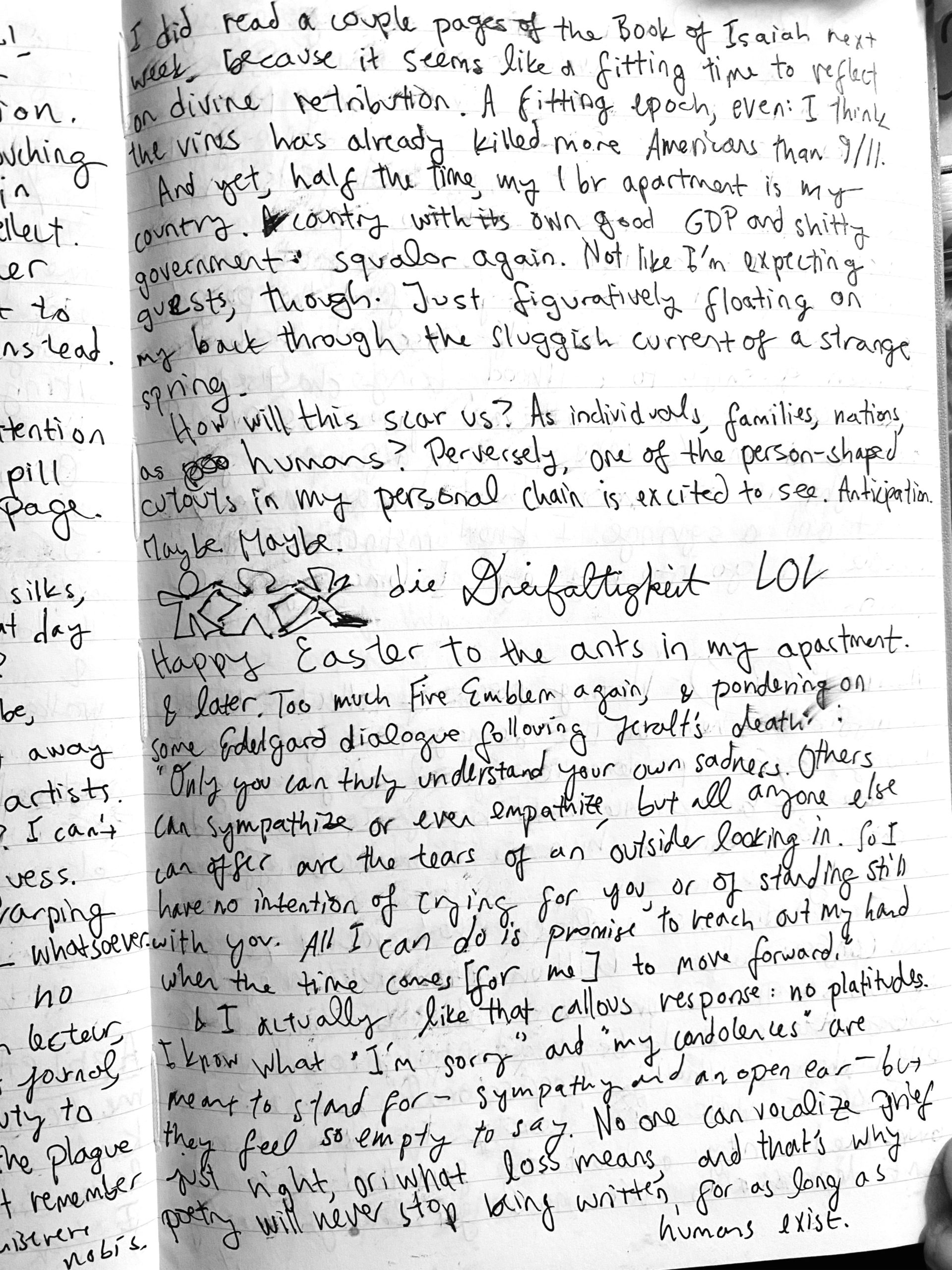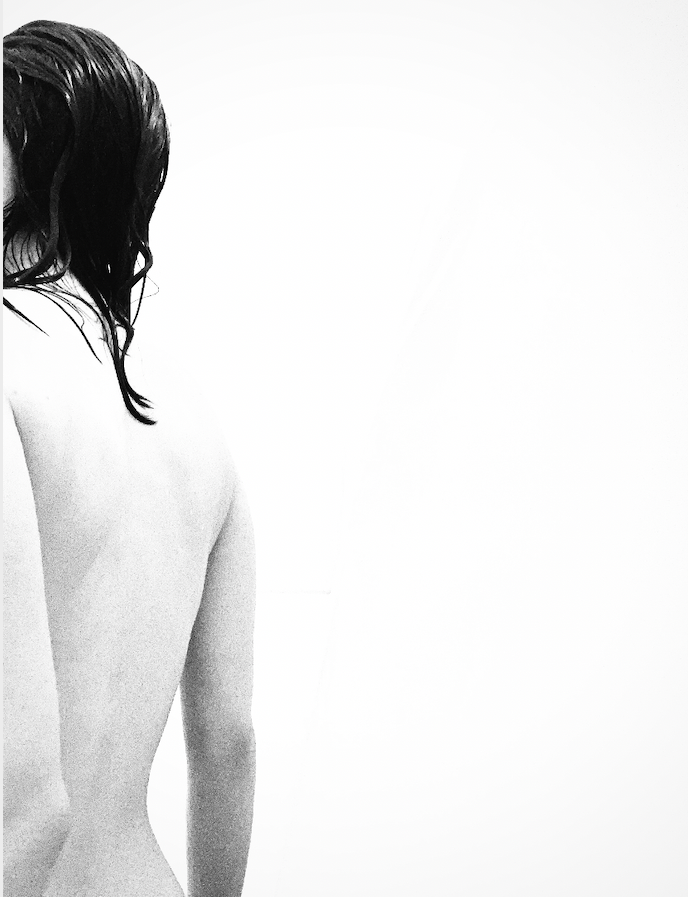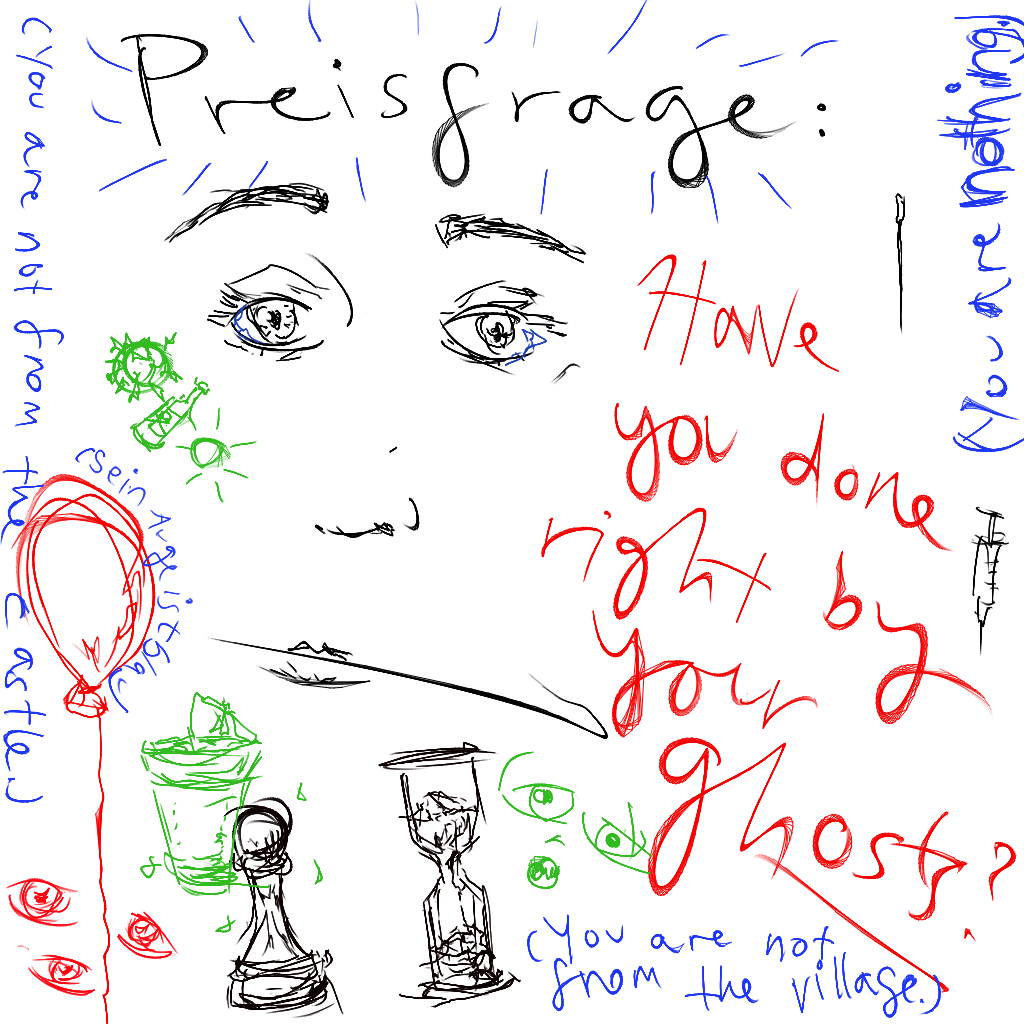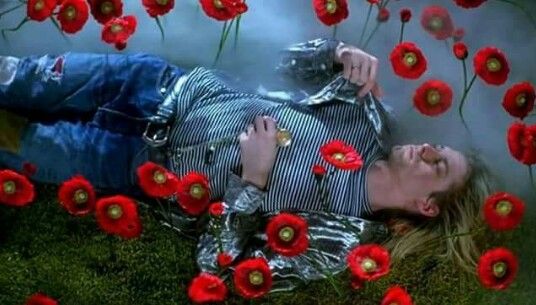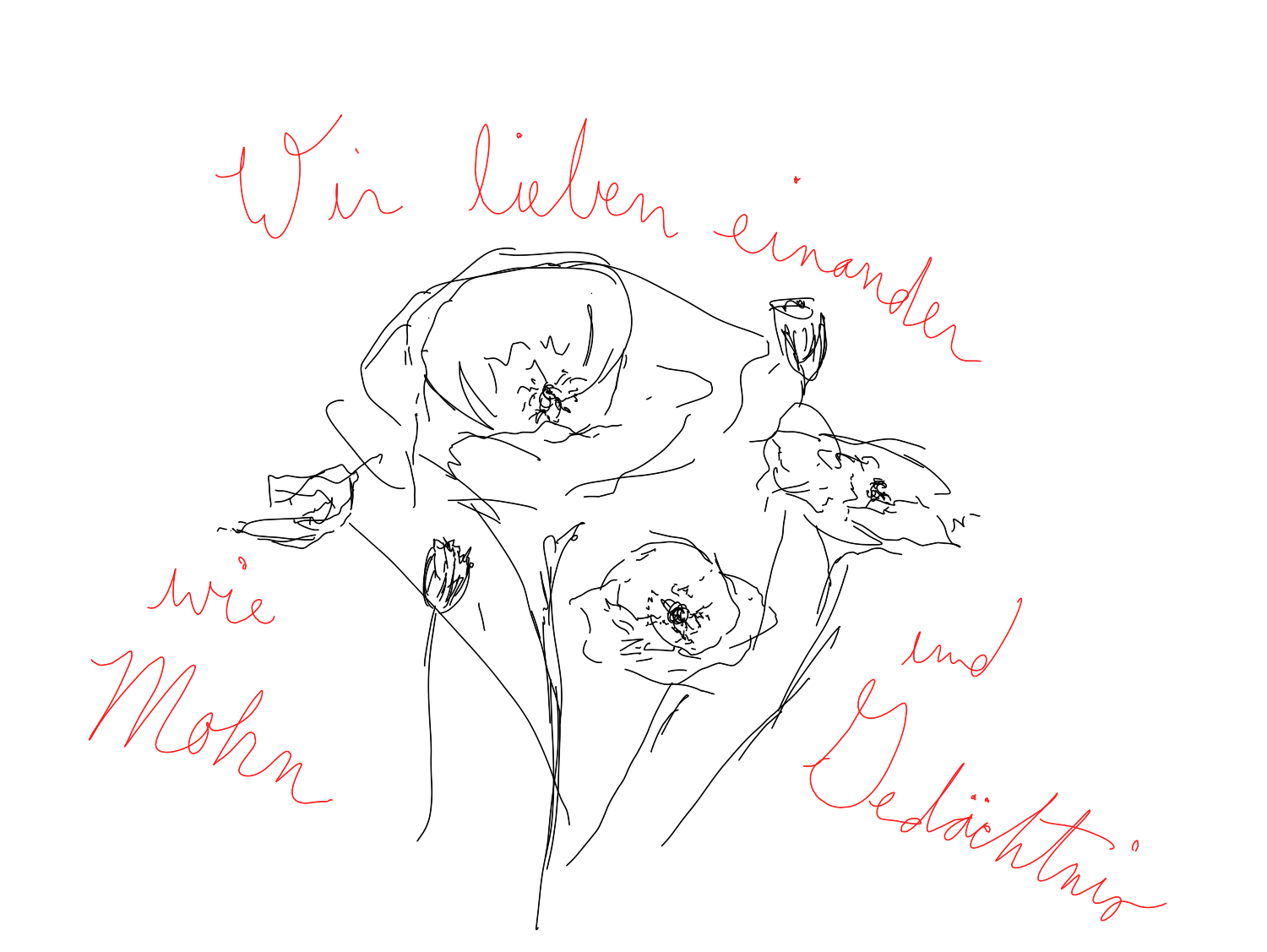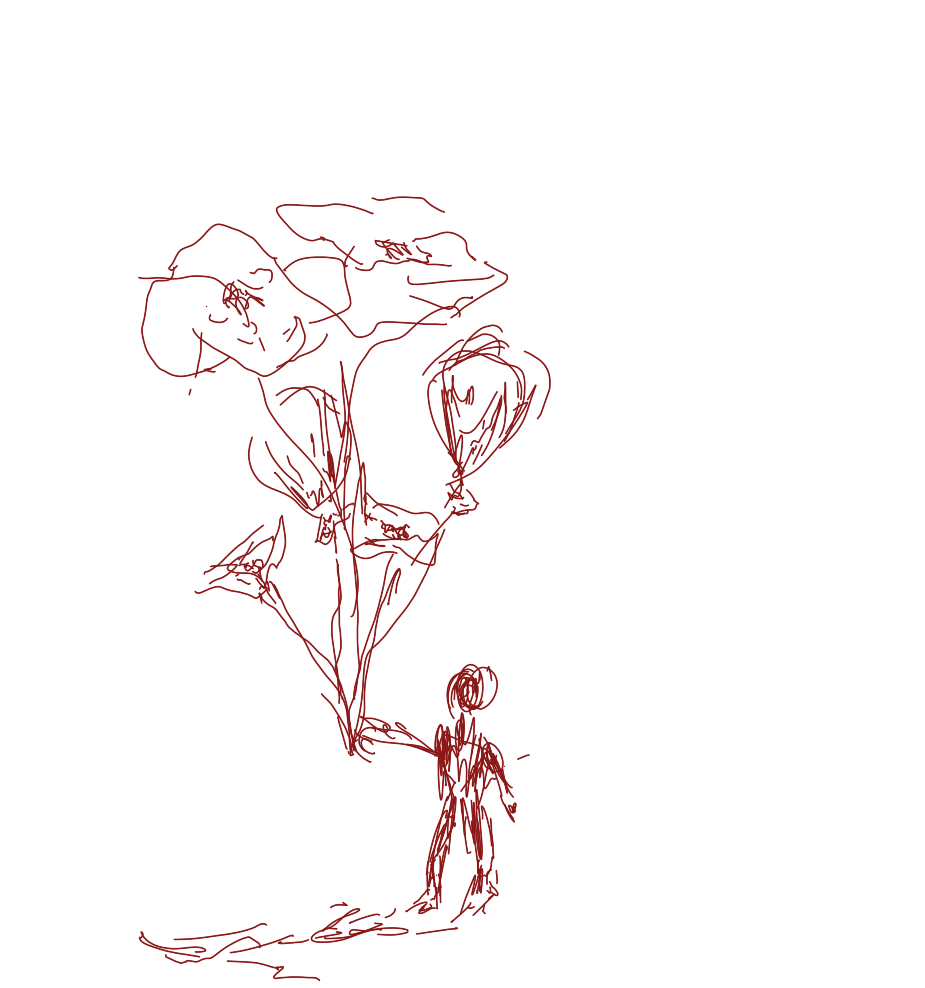The final episode of Game of Thrones aired over a year and a half ago. Why bring it up now, then? one might ask. I’m bringing it up now because the series apparently has longevity, albeit not in the way viewers would have expected before its infamous eighth season was broadcast. I encounter it nearly daily on Facebook, Reddit, and Twitter, in large part because the fandom’s ire at its ending has not faded. I first watched the series after witnessing the beginnings of that reaction and wondering how a popular HBO show could possibly fuck up its ending that massively. This proved to be a mistake; in spite of myself, I got invested in the story and its characters. And I’m still mad about it. What will give Game of Thrones a lasting place in pop cultural memory is not the anger itself, though, but some of the realities behind it:
- All media is inherently political – or, to put it a bit differently, all stories have a “moral.” And Tyrion memes aside, stories do matter.
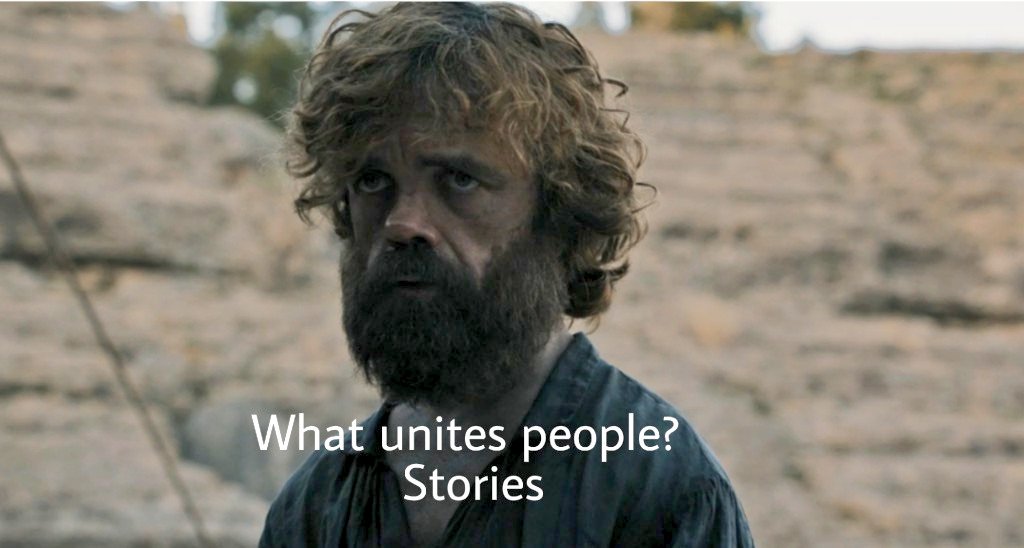
(source: @mohitsinghvi_ on Twitter)
- The stories we cling to are both a function of and an influence on our understanding of the world.
That in mind, we can take a broad look at the questions Game of Thrones asks, and the answers the show offers. I’ll pause a moment here to say that I’m mostly interested in the answers themselves, rather than how the show reaches them. Although many fans disappointed by the ending of Thrones have suggested that George R. R. Martin will reach the same ending in a satisfying way, I fundamentally disagree. We all know the writing of the last two seasons of Thrones, which Martin was not involved in, was bad. From what I can glean from interviews, Martin’s planned ending most likely included the same basic points:
- Bran becomes king of the Six Kingdoms
- Sansa becomes queen of an independent North
- Daenerys becomes a mad tyrant and burns down King’s Landing
- Daenerys dies by Jon’s hand
- Jon leaves Westeros for the North beyond the Wall
- Cersei and Jamie are killed
- Arya leaves Westeros
My opinion remains show-specific in that I’m reacting to these respective players’ characterizations as they are in the show. If Martin’s characters are unrecognizable from Benioff and Weiss’ characters – provided he ever actually finishes ASOIAF – my readings and opinions may change. The biggest assumption I’m making is that the main characters will end on the same notes RE: sympathy, that is, Daenerys and Cersei are the final villains, with Jon as the most sympathetic survivor of the series’ events. On, then, to the Big Questions the series asks:
- What makes a good or bad ruler?
- And by extension, who makes a good or bad ruler?
- Which causes are worth dying or killing for?
- When do the ends justify the means?
Although season eight largely sidesteps any narrative importance for the Night King, we can invoke him to begin examining how Thrones portrays good, effective leadership. By the time we reach the Long Night, there are two monarch figures left standing who have thus far been cast in a sympathetic light: Jon Snow and Daenerys Targaryen. Joining their forces together against the Night King and helping convince Cersei to add her own (sort of), a process that nearly kills Jon and does kill one of Dany’s dragons, marks a high point for both of them as leaders: they embody charisma, bravery, sacrifice, and a persistent faith in humanity. In addition to working with Cersei, they bring in outside forces (Wildlings, the Unsullied, and the Dothraki) and oversee cooperation between them and the xenophobic Westerosi.
If the victory over the Night King can serve as the culmination of Jon and Dany’s mutual effectiveness as rulers, we should also take a look at some of their other qualities and how they affect their leadership. We’ve seen both make Ned Stark’s fatal mistake of trusting too much: Jon is killed by men of the Night’s Watch under his command, and Dany loses Drogo and her unborn son in trusting the witch Mirri Maz Duur. Jon loses the respect of some of his fellow Northmen by bending the knee to Daenerys; Daenerys inadvertently incites riots by executing Mossador for killing an imprisoned slavemaster without a trial. They mirror one another in their struggles as leaders; they learn through trial and error that mercy must be tempered with brutal shows of justice and vice versa. They both fail; they are both saved by fantastical forces at work in Martin’s world.
The other key players who survive the Long Night should also be looked at, albeit briefly because their characterization becomes nonsensical some time before the last credits roll. Sansa and Cersei both weaponize a display of feminine passivity to their advantage, quietly leveraging shadowy schemers like Littlefinger and Varys against their political opponents. Sansa is sympathetic where Cersei is not, which seems to reflect a broader juxtaposition of Stark and Lannister characteristics. Cersei would torch the entire Realm for the sake of her loved ones; Tommen’s suicide becomes the point of her descent into pure villainy. Sansa is never shown to be particularly progressive, but she is just and honorable. Tyrion is something of an anti-Lannister in that he hates his immediate family, minus Jamie, but bears the Realm itself no ill will (although the show inexplicably discards his hatred for his sister near the end). Following his show trial in King’s Landing, Tyrion’s political machinations are initially motivated by a desire for revenge, which the show gradually replaces with a tenuous belief in Daenerys. Varys, on the other hand, is ostensibly motivated by a genuine desire to improve the Realm, but his lack of outright power forces him to resort to convoluted plots and bets on whether X or Y leader is more likely to align with his hopes. We never know what his true idea of “helping the Realm” entails because his power is usually restricted to the domain of secrets, blackmail, and clandestine plotting.
All that in mind, I think it’s reasonable to say that the show nudges us towards supporting either Daenerys, Jon, or Daenerys-and-Jon as a duo as the best prospect for the Iron Throne, with people like Tyrion, Varys, and Sansa as necessary parts of a leadership that extends beyond the solitary figure of the monarch. We also see key supports in Davos and Missandei, advisors who have lived the lives of the enslaved and the common, who ground all these political machinations in the material realities of the Realm.
Then comes season eight.
Once we’ve crossed the anticlimactic Rubicon of the Long Night, the only major plot point left in the show is the question of the Iron Throne. We, as viewers, expect an answer to this ongoing question of leadership; all the major character deaths up to this point have played into the theme of (in)effective rule, whether that rule be moral or immoral. We naturally hope for some payout for our grief in a moral ruler, although we don’t necessarily expect that outcome. What we do expect is some coherent commentary on what brings good leaders to power or what keeps them from it.
What follows, of course, is a shitshow that plays into some of the worst, most reactionary tropes in popular media. I wish the arrogance of the two men who wrote it surprised me, but the messages behind the conclusion of TV’s most successful fantasy franchise are already prevalent. At their most sinister, they boil down to the following:
- Women are fundamentally volatile and untrustworthy
- The logical endpoint of revolutionary sentiment is mass murder
- The status quo should be and will be preserved
- Foreigners [read: POC] have no loyalty or convictions
- Bad genes make a person untrustworthy
We can begin with the first point. Game of Thrones’ treatment of female characters has always stirred controversy. Rape scenes and gratuitous nudity aside, S8 cements the show’s “women problem” in its three key female leaders: Daenerys, Cersei, and Sansa. Some viewers suggest Arya’s victory over the Night King as a counterpoint, which I’d address by arguing that Arya plays no role whatsoever in the overarching plots of the show. Like Brienne, she is a strong woman who stabs things. Period. That isn’t a problem in and of itself; the greater issue is the sexist tropes the women who do make plot-relevant choices fall into.
I’ll start with Sansa, since her portrayal is arguably the least problematic of our three queens. In her case, I think Martin could feasibly achieve the same ending for the character without the sexism of the show, so my criticism here is more limited. To address the problem with show Sansa, though: she’s an “alpha bitch.” Her concept of leadership is largely informed by her observation of Cersei and Littlefinger, but her writing in particular throws in a side of cattiness, most apparent in her inexplicable disliking of Daenerys (apparently the script notes make explicit that Sansa is jealous of Dany’s beauty, which is particularly egregious). This is after she elects not to inform Jon of her Vale backup forces in the Battle of the Bastards, presumably sacrificing lives to appear the savior, and after she immediately ceases showing any concern for Jon RE: his trip to Dragonstone after he puts her in charge. And then there’s the whole spilling Jon’s heritage secret thing. Considered together with her insistence on ruling the North alone when another Stark has taken the Throne, it seems like she has a will to power, but we never hear about any particular vision for her reign, or why she would rather see herself rule than Jon or Daenerys or anyone else. Much like post-S6 Cersei, she seems to exist solely to fuck around with people.
Ah, Cersei. At her best, Cersei is a compelling sympathetic villain. I genuinely felt for her when I saw her reaction to Myrcella’s death, and during her Walk of Shame sequence. By the end of GoT, though, she has become a cardboard evil queen from a Disney cartoon. She’s the worst of the Lannisters without any of their redeeming qualities, like Tywin and Tyrion’s intelligence or Jamie’s honor. Her deviant sexual attraction to her brother, the victim to her wiles, is the Source of All Evil. Her one redeeming quality – per Tyrion – is as gendered as her many flaws: she loves her children. When her children are torn from her, then, it’s only natural that she goes into full blown Female Hysteria mode and starts killing people nigh indiscriminately for the sake of revenge….and an aimless power. Her use and maintenance of said power is restricted to drinking wine and ordering men to act on her behalf. What makes Cersei’s ending tragic for me is her passivity: Cersei’s vindictiveness and paranoia can be traced to Tywin’s treatment of her as a daughter. She desperately wanted the agency afforded to her brothers. She never really got it, not even as the first Mad Queen.
And what hasn’t already been said of Mad Queen Daenerys? My one major complaint about much of the post-S8 Daenerys discourse is that people so often argue that her ending would have been a good one if it had been properly developed. I disagree: her ending was bad. Period. Here we have a character who has spent multiple seasons promising herself and her supporters that she will rise above the legacy of her homicidally insane father. Going the insanity route with her is deeply nihilistic at best, and borderline eugenicist at worst. Bringing her anti-slavery stance and her desire to “break the wheel” into the mix adds yet another layer of problems.
Let’s start with the sexism, though, since we’re already on the topic. Daenerys is a superb Strong Female Character™ at her best, so looking at her worst as a subversion of her best just doubles the shit heap. Again. Here’s one of my favorite quotes from her, a rare gem in season seven:
I have been sold like a broodmare. I’ve been chained and betrayed, raped and defiled. Do you know what kept me standing in through all those years in exile? Faith. Not in any gods, not in myths and legends: in myself. In Daenerys Targaryen.
To be clear: I am a Daenerys stan, 100 percent. I have been a Daenerys stan from the moment I realized I was emotionally attached to the show. I watched Game of Thrones for Daenerys Targaryen. She was an inspiration to me. And what made her special, what made her relatable in spite of all the dragonfire, was intimately connected to her gender.
A quick recap of her arc: Daenerys grows up in exile alongside a narcissistic brother who sexually abuses her. The same family name that had her on the run from assassins as a child allows said brother to essentially sell her into sexual slavery. She learns how to get Drogo to love her as a way to win her own agency. She gains her power through her dragons, through “fire and blood:” in her first personal victory over an enemy, and in her own loss. Tell me this isn’t gendered:

She uses the power she gains to win agency for others. She eventually hopes to “break the wheel,” to end the Westerosi monarchy as it stands.
That’s not to say she isn’t flawed or problematic. She’s self-righteous and borderline vengeful. The show portrays her as a White Savior figure to an egregious degree. She’s not good at dealing with contempt from her subjects (perhaps her survival-based need to be loved by Drogo has carried over?). She relies too much on a family name that ought not be relevant when it comes to her motivations for taking the Iron Throne.
Nonetheless, what makes (or made) Daenerys unique for me was that she basically turns around gender-based oppression and makes her position empowering. I don’t think it’s a coincidence that she’s naked in two key scenes in securing her power: the birth of her dragons and burning the Khals. It’s a stark contrast to her nudity in the series’ opening episode, when she is appraised and molested by her brother and raped by her husband. Here, I also think of her slave collar-style dress, where she wears a symbol of the oppressed from a position of power:

Apart from her name, her whole character is enveloped in outsider-ness. Her advisor and best friend Missandei, as well as her military commander, were once enslaved. Her Small Council is full of exiles who hope for a better Westeros. She falls in love with Jon Snow when he’s a bastard and potential adversary king. She’s foreign in Essos, where she grew up, and foreign in Westeros, where she was born. She’s a foreigner, but a foreigner portrayed as a symbol of hope, of literally rising from the ashes of loss and powerlessness. To me, there’s something fundamentally revolutionary in that.
Then, of course, we have season eight, because why not turn her into an actual Foreign Menace instead? Have her go mad because she’s a woman with bad genes who can’t handle grief and adversity. Take everything away from her because this show is realistic and we can’t let her have too much. Kill off Missandei, the only major WOC character, as a plot device to help trigger her inborn madness. Make her an incel. Make her the idiot who “just kinda forgot” about the Iron Fleet. Make her Her Satanic Majesty. Then make her noble lover stab her in the heart with a kiss, because bitches be cray, and she needs to be put down like the rabid dog she is.
(An aside: one might counter-argue that the destruction of King’s Landing is about the inherent volatility of one person having too much power. But I would counter that every king or queen in this series is an authoritarian ruler of their respective domain.)
This is definitely show-specific, but I also want to take a moment to highlight what a fucking mess the blocking of Daenerys’ post-psychotic-break victory speech scene is:
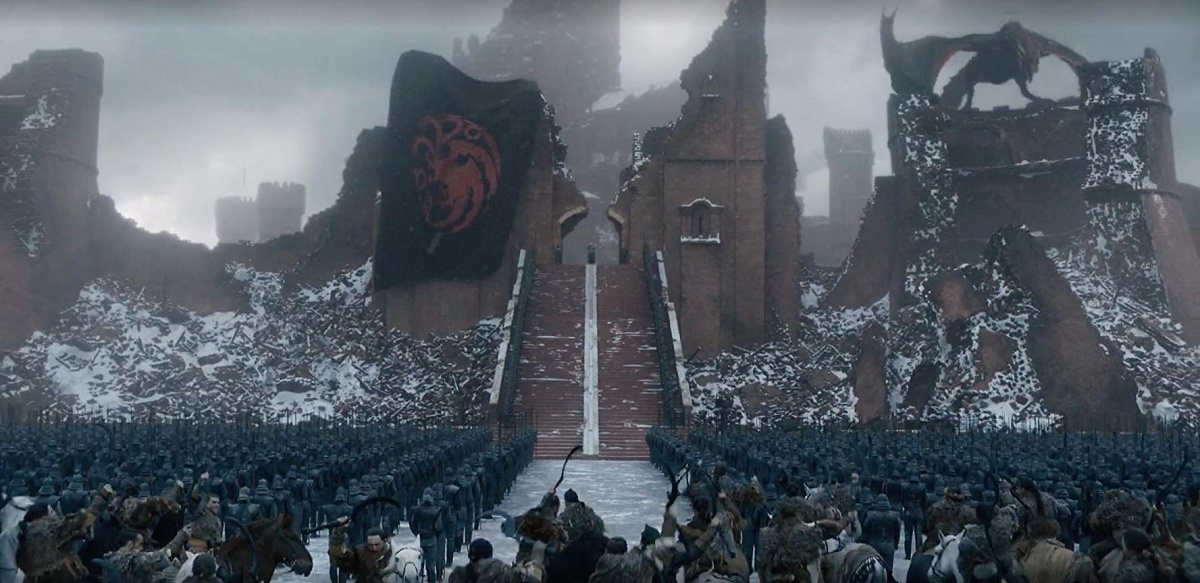
If you’re into Thrones discourse at all, you’ve probably already read analyses of the fascist imagery in this scene. I just want to point out the pernicious irony of having both the Nazi threat and the “foreign savage” threat portayed like this, since in reality, the former scapegoats the latter. Somehow, this scene wants us to view the fascists and the foreign savages as one and the same, united in Mad Queen Daenerys, the revolutionary who took her revolution too far. And I suppose Daenerys’ use of their respective native tongues to her two groups of soldiers should also have us quaking in our boots. Oh no! She’s not one of us!
The actual script for this episode has Tyrion surveying the damage with the following thoughts: If this is liberation, [he] doesn’t believe in liberation theology. (Never mind Tyrion’s own use of wildfire in the Battle of Blackwater Bay, or anything he says in his King’s Landing trial about how he wished them all dead.) When he persuades Jon Snow to kill Daenerys, he say this:
When she murdered the slavers of Astapor, I’m sure no one but the slavers complained. After all, they were evil men. When she crucified hundreds of Meereenese nobles, who could argue? They were evil men. The Dothraki khals she burned alive? They would have done worse to her. Everywhere she goes, evil men die and we cheer her for it. And she grows more powerful and more sure that she is good and right.
Essentially, our message here is that “if you kill bad people, that probably means you’ll kill good people too.” There’s a more interesting discussion somewhere in there about how we as a Western, primarily white audience may be more upset about her killing Westerosi “evil men” than Essosi “evil men,” but I don’t think that’s the commentary this particular quote is making, since Tyrion was fine with killing people in Essos.
Perhaps we can say the show did some good in not putting Jon on the throne after everything? In not propagating the tired message of the best rulers not wanting to rule? Ah, but no, we’re given the sense that Jon should have ruled (because powerful Targaryen genes + mentally stable Stark genes + dick), but gave up the chance for the duty to humanity, i.e. the duty to off the Jezebel who would have him sympathize with her atrocities. More sexism: in swearing fealty to Daenerys, Jon becomes impotent with regard to the plot. He is exiled not for murder, but for becoming the subordinate of a woman who is further in line for the throne from him. Grey Worm, the Unsullied, and the Dothraki (hell, even Drogon) have no interest in revenge because Daenerys’ death has broken them from their apparent enchantment (and because the show is maybe kinda a little bit racist and couldn’t be bothered with giving meaningful arcs to the POC characters). O, the wiles of revolution and beautiful women!
There’s more I could say, but the more I write, the more angry I get, so I’m just going to address my last point, which is the actual ending. The final scene shows us Bran and his Small Council, with the implication that things aren’t “back to normal” quite yet, but they will be. As the Three-Eyed Raven, Bran will likely be incredibly long-lived, so we can assume the status quo he maintains (if he is successful) will last quite some time. I’ll put aside the question of why the fuck Bran isn’t considered evil when he admits to knowing everything that would happen in King’s Landing and not saying anything about it. Instead, let’s look at his characterization by the end of the show: he can see the past, and apparently the future. He’s a Stark, which I guess we’re supposed to be pleased about? He has no human emotions.
If the Starks are the house that most embodies the Middle Ages chivalric tradition and Bran himself is essentially a robot, the show’s proposed answer to its leadership question is…what, exactly? Let the AIs rule us? Centrist technocracy 5ever? The best leader is one who is all-knowing and has no emotion? “Let us end our wars by reverting to the tepid conservatism that precipitated them” is a fucking stupid message. “The payoff to attempts at revolution will be a return to the status quo” is ahistorical. So, what then?
We have always told stories. In our stories, we have always tried to show what is wrong with the world and suggest how we might change it. The king “with the best story,” though, is in fact the one who leaves the story either woefully incomplete or woefully contradictory and nihilistic. And so Game of Thrones leaves us with this: a bad story. Period.

